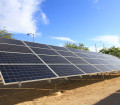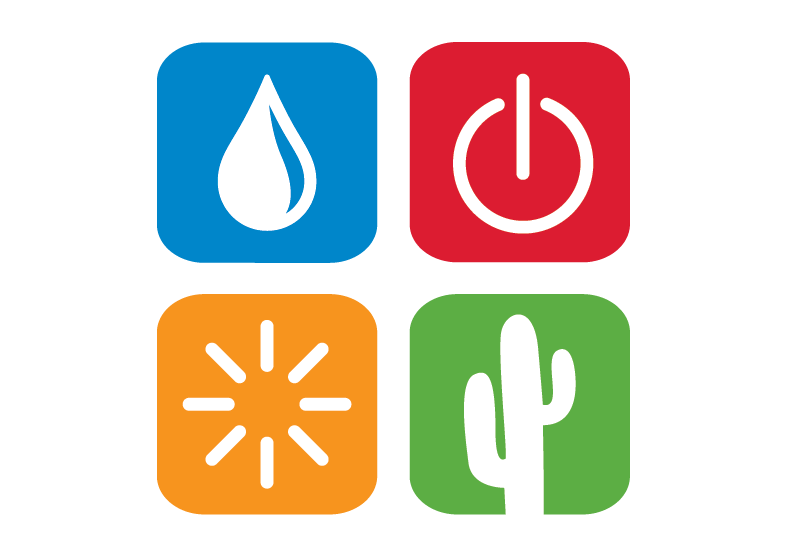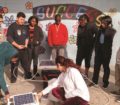FOR IMMEDIATE RELEASE
June 26, 2014
Contact: Tiffannie Bond/Melissa Biernacinski, Imagine Communications, 702-837-8996
EPSCoR Nevada seeks businesses, wants to fund internships
EPSCoR Nevada to provide funding, businesses to provide internships
LAS VEGAS – STEM (science, technology, engineering, math) jobs are growing at 1.7 times the rate of non-STEM jobs, the Department of Commerce estimates, but the United States is not producing enough candidates to fill them. In fact, only 16 percent of high school students are interested in pursuing STEM careers, according to the Department of Education.
Locally and statewide, EPSCoR Nevada is working to fill that gap. In addition to hosting a STEM Careers Investigation Program Oct. 16 through Nov. 20, EPSCoR Nevada is seeking Nevada-based STEM companies to provide with funding for three STEM internships annually for the next three years. (NSHE provides funding, the company provides the internship.)
Funded as part of the Nevada System of Higher Education’s Solar Nexus Project, a five-year research project that aims to help Nevada establish itself as a competitive state in the field of solar nexus research, EPSCoR Nevada’s work developing a qualified STEM workforce is even bigger than the project itself.
Interested businesses may contact Lori Brazfield, director of System Sponsored Programs and Nevada EPSCoR Office, at lori_brazfield@nshe.nevada.edu.
EPSCoR Nevada can fund up to $10,000 total. Companies receiving funding may choose whether the internship they provide is a part-time academic year or a full-time summer internship.
Specifically, EPSCoR Nevada is seeking industry organizations in the following STEM sub-areas: solar energy generation/energy distribution, environmental research, water research and research on solar irradiance and economic modeling of solar energy. (More below on how each ties into the Solar Nexus Project.)
The Solar Nexus Project is in its second year. EPSCoR Nevada serves as the catalyst for inspiring undergraduate students to earn their master’s and doctorate degrees in science, technology, engineering and math.
Solar energy generation/energy distribution: Solar Nexus Project researchers propose to improve solar power efficiency by advancing knowledge on thermal cycle efficiency and dry cooling, understanding and controlling dust generation, dust accumulation using remote sensing and soiling of panels and mirrors; and investigating novel high temperature materials for use in solar plants. In addition, it is proposed to use nanotechnology to electro-actively remove dust particles from solar panels by fine-tuning the surface properties. The project also plans to investigate physical, chemical and spectral characteristics of dust to improve the design of dust repellent solar panels that will reduce the use of water at solar energy facilities.
Environmental research: The environmental impacts research will result in science-based information that agencies can use for designing effective ways to manage and mitigate environmental issues. Additionally, it will advance understanding of landscape fragmentation in arid environments associated with solar energy development; use solar energy infrastructure to harvest rainwater and increase water availability for arid environments; increase the restoration effectiveness of land disturbed by renewable energy development; and open new potentially transformative opportunities to address population and community genomics on non-model organisms.
Water research: Research in water and wastewater treatment will include more environmentally sustainable practices for solar plants; decreasing energy for water treatment and transport as well as infrastructure footprints; exploring how to reuse low-quality groundwater for solar energy plants; applying the system dynamic modeling of energy intensity and carbon footprint for transport and treatment of drinking water and wastewater; investigating the membrane distillation of solar facility cooling waters; and discovering treatment of shallow groundwater and reuse water for use in solar installations and energy generation on landholdings of utilities.
Research on solar irradiance and economic modeling of solar energy: Research will lead to higher certainty predictions about potential generation of solar electricity on a day-to-day basis as well as new economically feasible methods that decision-makers can use in evaluating energy versus water tradeoffs for solar energy investments.
Funded by the National Science Foundation (NSF) Experimental Program to Stimulate Competitive Research (EPSCoR), the Solar Nexus Project supports coordinated research on the nexus of solar energy generation with impacts on water resources and the environment. Its research involves and/or will benefit the following areas: solar power, engineering, diversity, education, cyberinfrastructure, Nevada economic development and diversification and workforce development, data collection, connectivity, software tools to help scientists, students and decision-makers.
The Solar Nexus Project’s program administration is located in the NSHE System Sponsored Programs/EPSCoR Office at 5550 W. Flamingo Road, Suite A2. For more information on the project, visit solarnexus.epscorspo.nevada.edu, email nshespo@nshe.nevada.edu or call 702-522-7070.
# # # # #
Downloadable PDF







